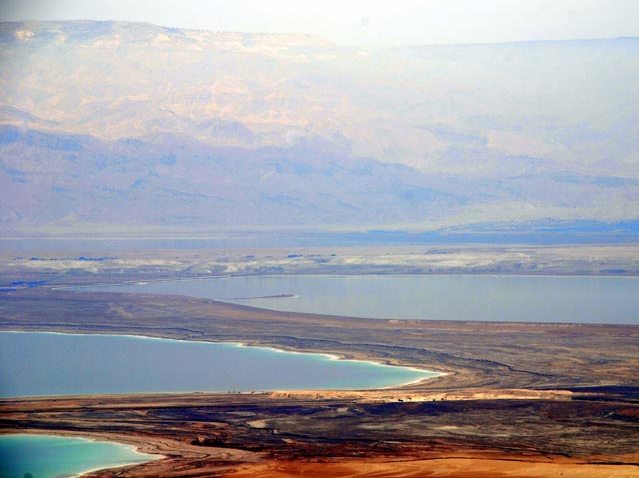Israel, Jordan to Build Red Sea-Dead Sea Pipeline
-
-
12/10/2013
-
-

 The Dead Sea
Copyright: MFA free usage
The Dead Sea
Copyright: MFA free usage
|
Copyright: MFA free usage
GovXContentSection
Israel, Jordan and the Palestinian Authority signed an agreement on Monday afternoon (9 December 2013) on laying a water pipeline to link the Red Sea with the Dead Sea, part of an initiative that would produce millions of cubic meters of drinking water for the parched region and slake the critically dwindling Dead Sea.
Israel, Jordan and the Palestinian Authority
signed an agreement on Monday afternoon (9 December 2013) on laying a water
pipeline to link the Red Sea with the Dead Sea at the headquarters of the World
Bank in Washington DC. Regional Cooperation, and National Infrastructures,
Energy and Water Minister Silvan Shalom signed for Israel. Water and Irrigation
Minister Hazem Al Nasser signed for Jordan. Water Authority Minister Dr.
Shaddad Attili signed for the Palestinian Authority.
The pipeline will be 180 kilometers long and will pass through Jordanian
territory and will channel 100 million cubic meters of water per annum
northward from the Red Sea at an estimated cost of $300-400 million. A BOT
tender for the project will be published in 2014. The pipeline will take an
estimated three years to complete. The inflow of water from the Red Sea will
slow the drying up of the Dead Sea and its concomitant negative effects.
Approximately 200 million cubic meters of water will be drawn per annum. Around
80 million cubic meters will be desalinated at a facility to be built in an Aqaba
facility with Israel receiving 30-50 million cubic meters of water for the
Arava region and Eilat, and with Jordan receiving 30 million cubic meters of
water for use in the south. Israel will also sell Jordan another 50 million
cubic meters of water from the Kinneret for use in the north.
Minister Shalom said, "This is a historic agreement that realizes a dream
of many years and the dream of Herzl. The agreement is of the highest
diplomatic, economic, environmental and strategic importance." He added,
"I am pleased that an investment of years has reached its hoped-for
conclusion and will benefit Israel and the residents of the region as a whole.
The other goals of this project are the generation of electricity by utilizing
the difference in elevation between the Red Sea and the Dead Sea and the
development of tourism infrastructures."
-
-
-
-
-
-
-
-
-
-
-
-
-
-
-
-
-
-
-